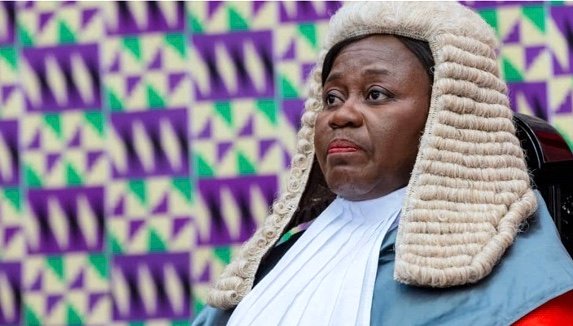A heated debate has erupted in Ghana’s legal circles following Chief Justice Gertrude Torkornoo’s decision to file an injunction at the Supreme Court to stop the committee hearing her possible removal. Kwaku Ansa-Asare, former Director of the Ghana School of Law, has blasted the Chief Justice’s move, describing it as a “provocation” that undermines constitutional governance.
The Genesis of the Controversy
The controversy began when President John Dramani Mahama suspended Chief Justice Torkornoo under Article 146 of the Constitution, following three separate petitions for her removal. In response, the Chief Justice filed an application at the Supreme Court, seeking to bar two Justices from participating in the inquiry into the petitions and requesting an interlocutory injunction against the presidential committee established to investigate the petitions.
Ansa-Asare’s Scathing Critique
Ansa-Asare criticized the Chief Justice’s decision, arguing that her first point of call should have been the Judicial Council, not the apex court. “She should have gone to the Judicial Council,” he stated. “That body was created by the Constitution to help successive Chief Justices behave themselves. It is a counsel-seeking institution.” Ansa-Asare emphasized that the Constitution is clear about the judiciary’s independence being subject to the Constitution, citing Article 125.
Constitutional Implications
The former Director of the Ghana School of Law warned that the Chief Justice’s move is a calculated attempt to frustrate the work of the committee set up by the President under Article 146. “This is a provocation,” he said. “Their acts are designed to provoke the members of the committee into doing things that will turn out to be unorthodox and unconstitutional.” Ansa-Asare lamented the emerging culture of constitutional manipulation by governance actors, including the judiciary.
Concerns about Accountability
Ansa-Asare expressed disappointment and alarm about the potential implications for future accountability. “If a Chief Justice won’t even go to her own Judicial Council first when there’s a problem, what example is she setting?” he questioned. He stressed that governance institutions created by the Constitution are meant to help officials behave themselves, from the presidency to the media.
Expert Insights
Quoting constitutional law expert Professor Kofi Kumado, Ansa-Asare highlighted the distinction between democracy and constitutionalism. “Kofi Kumado once said democracy is not phenomenal with constitutionalism. The two are different,” he said. “Sometimes when the Constitution says ‘shall,’ it means ‘shall.’ You don’t interpret it based on convenience.”
The Way Forward
As the controversy surrounding Chief Justice Torkornoo’s Supreme Court move continues to unfold, Ghanaians are eagerly awaiting the outcome. Will the Chief Justice’s actions be deemed constitutional, or will Ansa-Asare’s criticisms hold sway? One thing is certain: the implications of this case will have far-reaching consequences for Ghana’s judiciary and constitutional governance.
Source: Africa Publicity








